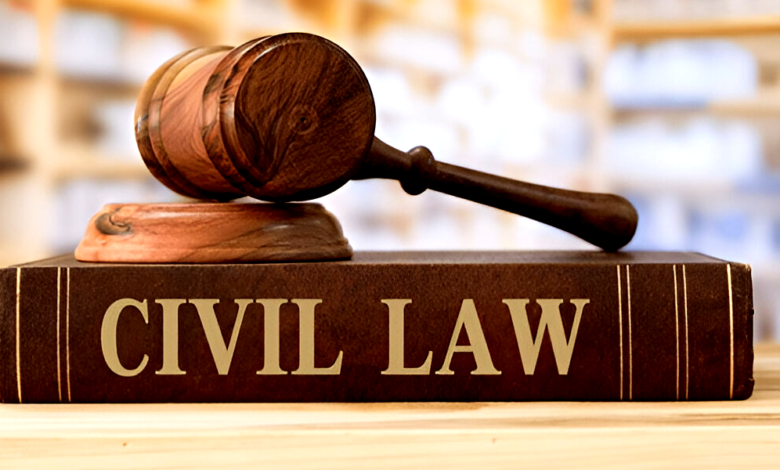
Understanding Your Civil Rights: What the Law Says in 2025
Civil rights are fundamental to ensuring equality, justice, and personal freedoms within a democratic society. Understanding your civil rights in 2025 is more critical
Civil rights are fundamental to ensuring equality, justice, and personal freedoms within a democratic society. Understanding your civil rights in 2025 is more critical than ever as legal frameworks continue to evolve in response to social, political, and technological changes. With advancements in human rights policies, digital privacy concerns, and expanding protections against discrimination, individuals must stay informed about what the law says about their freedoms and responsibilities. Governments worldwide are enacting new legislation to protect citizens from emerging threats to their rights, ensuring that democracy remains robust and fair.
As legal systems adapt to contemporary challenges, civil rights continue to be at the forefront of discussions about equality and justice. From freedom of speech to protections against discrimination in the workplace, education, and online spaces, the law provides citizens with a framework that governs their interactions with the state and with one another. In 2025, new policies focus on balancing personal liberties with public safety, regulating artificial intelligence’s role in governance, and ensuring that marginalized communities receive adequate protection. This article will explore the essential components of civil rights, the latest legal developments, and what individuals can do to safeguard their rights in an increasingly complex world.
The Foundations of Civil Rights
Civil rights encompass the fundamental liberties granted to individuals by their governments to ensure equal protection under the law. These rights often derive from constitutional provisions, international treaties, and legal precedents designed to prevent discrimination and uphold human dignity. The right to free speech, the right to privacy, and the right to a fair trial are just a few examples of basic civil rights that help protect individuals from government overreach and social injustices.
In democratic societies, civil rights have historically evolved through struggles and activism. The Civil Rights Movement in the United States, the fight against apartheid in South Africa, and global human rights initiatives have shaped modern understandings of equality and justice. In 2025, these foundational principles remain intact but face new challenges due to technological advancements, economic disparities, and political shifts. Governments continue to refine laws that protect citizens from discrimination based on race, gender, religion, sexual orientation, and disability.
Freedom of Speech and Expression in 2025
Freedom of speech is a cornerstone of democratic societies, allowing individuals to express their opinions without fear of government retaliation. However, in 2025, this right is increasingly scrutinized in the digital era, where misinformation, hate speech, and online harassment are prevalent. Many governments have implemented regulations that attempt to balance free speech with preventing harm, leading to debates about censorship and the power of social media corporations to moderate content.
New policies address concerns over misinformation by enforcing accountability measures for social media platforms and users. Digital expression remains protected, but there are stricter regulations on incitement to violence and spreading false information that may endanger public safety. Courts worldwide continue to navigate the fine line between protecting free speech and curbing speech that promotes harm or discrimination.
Privacy Rights and Data Protection
With technological advancements, privacy rights have become a significant aspect of civil liberties in 2025. Governments and private corporations collect vast amounts of personal data, raising concerns over surveillance, data breaches, and misuse of personal information. New privacy laws, such as stricter regulations on data collection and AI monitoring, aim to give individuals more control over their information.
Citizens now have greater rights to demand transparency from companies and governments regarding data collection practices. Legal reforms ensure that companies obtain explicit consent before gathering personal data and provide mechanisms for individuals to delete or restrict access to their data. While these changes enhance consumer protection, they also present challenges for businesses adapting to stricter compliance requirements.
Equal Protection Under the Law
Equality remains a core principle in civil rights law, with ongoing efforts to eliminate discrimination in various aspects of life. In 2025, anti-discrimination laws have expanded to cover biases in artificial intelligence, workplace inequalities, and access to digital services. With AI playing a growing role in hiring, law enforcement, and financial services, governments have introduced regulations to ensure that algorithms do not reinforce existing biases.
Workplace discrimination laws continue to evolve, with stricter policies against gender pay gaps and discriminatory hiring practices. Employers must demonstrate transparency in their pay structures and hiring decisions, and employees have stronger legal avenues to challenge workplace bias. Similarly, access to public services and accommodations has been reinforced to ensure that marginalized communities receive equal treatment.
Criminal Justice and Civil Liberties
The legal system remains a crucial area where civil rights protections are frequently debated. Issues such as police accountability, prison reform, and fair trial rights are continuously evolving. In 2025, body camera mandates for law enforcement, reforms to sentencing guidelines, and increased oversight of prison conditions have become key areas of focus.
Efforts to address racial disparities in the criminal justice system have led to policy shifts emphasizing rehabilitation over punitive measures. Governments worldwide are reconsidering mandatory minimum sentencing laws and investing in restorative justice programs. Meanwhile, the right to a fair trial has been reinforced with measures ensuring legal representation for all individuals, regardless of economic status.
Voting Rights and Political Participation
Ensuring fair and accessible voting remains a fundamental aspect of civil rights. In 2025, many countries have adopted electronic voting systems to enhance participation and reduce barriers to casting a ballot. However, concerns about election security and voter suppression persist, prompting the need for stringent safeguards against manipulation.
Legal protections against voter suppression tactics, such as gerrymandering and restrictive ID laws, have been strengthened. Civic engagement initiatives aim to educate citizens about their voting rights and encourage participation in democratic processes. The role of social media in political campaigns continues to be scrutinized, with regulations in place to prevent misinformation from influencing election outcomes.
Civil Rights in a Global Context
The fight for civil rights extends beyond national borders, with international organizations advocating for human rights protections worldwide. In 2025, global cooperation on civil liberties has led to new agreements addressing refugee rights, labor protections, and digital freedom. Countries facing human rights crises have seen increased pressure from the international community to uphold democratic values and prevent abuses.
Humanitarian organizations continue to play a vital role in documenting human rights violations and supporting marginalized populations. Global movements for climate justice, racial equality, and gender rights highlight the interconnected nature of civil rights struggles across different regions.
Read More: Experienced Civil Rights Lawyers in Mississippi: Fighting Injustice
Conclusion
Understanding your civil rights in 2025 is essential in navigating the complexities of modern society. As technology, politics, and social norms evolve, the laws protecting individual freedoms also change to address new challenges. While civil rights continue to be a cornerstone of democracy, ongoing vigilance and advocacy are necessary to ensure these rights are upheld and extended to all members of society.
As individuals, staying informed about civil rights laws, engaging in civic participation, and advocating for fair policies contribute to a just and equitable world. Governments, organizations, and citizens must work together to uphold the principles of freedom, equality, and justice. The progress made in civil rights protections serves as a reminder that the fight for human dignity is ongoing, requiring continuous effort to safeguard the rights of current and future generations.
FAQs
1. What are civil rights?
Civil rights are the fundamental freedoms and protections granted to individuals by law, ensuring equal treatment and protection under government policies.
2. How have civil rights evolved in 2025?
Civil rights have expanded to include digital privacy, protections against AI biases, and stronger anti-discrimination laws in workplaces and public spaces.
3. What new laws protect freedom of speech in 2025?
Laws now regulate misinformation, hate speech, and content moderation on digital platforms while maintaining the right to express opinions freely.
4. How are privacy rights enforced in 2025?
Stricter data protection laws require companies to obtain explicit consent for data collection and provide individuals with more control over their personal information.
5. What can individuals do to protect their civil rights?
Staying informed, voting in elections, advocating for fair policies, and engaging in civic activism are effective ways to safeguard civil rights for all.







